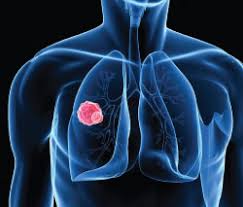
Diagnosed with Cancer? Your two greatest challenges are understanding cancer and understanding possible side effects from chemo and radiation. Knowledge is Power!
Learn about conventional, complementary, and integrative therapies.
Dealing with treatment side effects? Learn about evidence-based therapies to alleviate your symptoms.
Click the orange button to the right to learn more.
- You are here:
- Home »
- Blog »
- side effects ID and prevention »
- LDCT- Over-diagnosis, Over-Treatment?
LDCT- Over-diagnosis, Over-Treatment?

The question is not if low-dose computed tomography (LDCT) results in over-diagnosis and/or over-treatment of lung cancer. The question is what, if anything, can should the newly diagnosed lung cancer patient do if he/she has been diagnosed with lung cancer using LDCT?
Over-diagnosis and over-treatment of many cancers is not a question. It is a fact of oncology. DCIS, Melanoma, PCa, and others. Low-dose computed tomography -LDCT is another example of the double edged-sword that can result from catching cancer early.
After studying the issue since my own cancer diagnosis in early 1994, the conclusion I have come to is that:
- pathology of cancers is not black and white
- therefore pathology will ere on the side of a cancer diagnosis
- oncology is incentivized to diagnose and treat cancer
My guess is that if you are reading this post, you or a loved one has recently been diagnosed with lung cancer by LDCT. So you have to wonder if you are actually facing a lung cancer diagnosis.
In my experience, your choices are the following:
- get a second opinion.
- read the third article linked and excerpted below and find out what, if any, diagnostic methods you could undergo to confirm your current diagnosis.
- begin an evidence-based, non-conventional, non-toxic therapy plan including anti-cancer nutrition, supplementation and lifestyle.
If you determine that you don’t have lung cancer you will be thankful and some of the non-toxic anti-cancer changes to your life may stick. As a result you will probably not be diagnosed with other chronic diseases as a result.
If you do, in fact, have lung cancer, you are “pre-habilitating” yourself. According to research, you will respond better and heal faster by your pre-habilitation.
Please understand that conventional oncology- diagnostic imaging, therapies such as surgery, chemo and radiation, all are pieces of the puzzle. But only pieces. Your job is to learn about the full spectrum of evidence-based lung cancer therapies.
To learn more about the full spectrum of evidence-based therapies, scroll down the page, post a question or a comment and I will reply to you ASAP.
Hang in there,
David Emerson
- Cancer Survivor
- Cancer Coach
- Director PeopleBeatingCancer
Recommended Reading:
- Early Lung Cancer Therapies Reduce Cancer Deaths Significantly
- Early Lung Cancer, SBRT if Surgery is Not an Option
- The Cure for Lung Cancer May Be in Fish Oil
- Fish Oil Improves Response to Chemo, Improves OS for Lung Cancer Patients
Overdiagnosis of lung cancer with low-dose computed tomography screening: meta-analysis of the randomised clinical trials
“Abstract- In low-dose computed tomography (LDCT) screening for lung cancer, all three main conditions for overdiagnosis in cancer screening are present:
1) a reservoir of slowly or nongrowing lung cancer exists;
2) LDCT is a high-resolution imaging technology with the potential to identify this reservoir; and
3) eligible screening participants have a high risk of dying from causes other than lung cancer.
The degree of overdiagnosis in cancer screening is most validly estimated in high-quality randomised controlled trials (RCTs), with enough follow-up time after the end of screening to avoid lead-time bias and without contamination of the control group.
Nine RCTs investigating LDCT screening were identified. Two RCTs were excluded because lung cancer incidence after the end of screening was not published. Two other RCTs using active comparators were also excluded. Therefore, five RCTs were included: two trials were at low risk of bias, two of some concern and one at high risk of bias. In a meta-analysis of the two low risk of bias RCTs including 8156 healthy current or former smokers, 49% of the screen-detected cancers were overdiagnosed. There is uncertainty about this substantial degree of overdiagnosis due to unexplained heterogeneity and low precision of the summed estimate across the two trials.
Key points
-
Nine randomised controlled trials (RCTs) on low-dose computed tomography screening were identified; five were included for meta-analysis but only two of those were at low risk of bias.
-
In a meta-analysis of recent low risk of bias RCTs including 8156 healthy current or former smokers from developed countries, we found that 49% of the screen-detected cancers may be overdiagnosed.
-
There is uncertainty about the degree of overdiagnosis in lung cancer screening due to unexplained heterogeneity and low precision of the point estimate.
-
If only high-quality RCTs are included in the meta-analysis, the degree of overdiagnosis is substantial…”
Lung Cancer, CT Scans- Are they Worth It?
“There was 354 lung cancer deaths among those who received CT scans and 442 among those who got X-rays…”
I will be honest. I read studies all the time that indicate that early screening for cancers cause more harm than they prevent. However low-dose CT scans for long-time, high-risk smokers may be an exception to the rule.
The NYT article linked and excerpted clearly demonstrates a benefit for high-risk smokers who get low-dose CT scans. But there is considerable cost involved. And the cumulative effect of radiation may cause serious long-term health risks. More importantly, lung cancer screening can lead to over-diagnosis. The jury is out for now. But I will watch this issue and report back if I find anything…”
New model may inform ‘how aggressively a lung cancer should be treated’
“…Dr. Schabath said they are currently validating their radiomic biomarkers in additional cohorts. “If successful, we will conduct a prospective clinical utility trial,” he explained when asked about research next steps. “If that is successful, we would have enough evidence to consider these radiomic biomarkers in standard-of-care.”
MNT also spoke with Dr. Andrea McKee, radiation oncology, director of the Rescue Lung Rescue Life CT lung screening program at Lahey Hospital and Medical Center and national spokesperson for the American Lung Association, about this study.
She believes this could be a useful tool to help identify those individuals with early-stage screen-detected lung cancer who may require care escalation beyond surgical resection, particularly those who may be appropriate candidates for neoadjuvant chemoimmunotherapy.
However, Dr. McKee disagreed with researchers’ characterization of overdiagnosis in lung cancer screenings in their study. “The mischaracterization of overdiagnosis and false-positive rates in CT lung screening is one of the identified barriers to adoption of screening in the US and abroad,” she explained.
“Until we correct these important screening metric misconceptions, I fear we will continue to observe low screening uptake rates among high-risk individuals.”
For next steps in this research, Dr. McKee said she would like to see this analysis performed controlling for histology and in a current screening population where modern imaging and reporting techniques — those which exclude pulmonary ground glass opacityTrusted Source (GGOs) — are utilized.”


